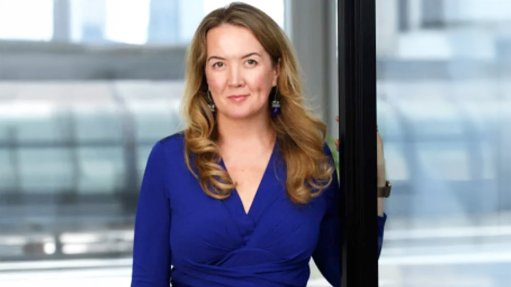New era of disruption
Perhaps the recent multiple incidents of extreme weather – hurricanes Harvey, Irma and Maria – do not only tell us that fierce weather is the new normal, but also that changes in weather, together with other global shifts and crises, are forcing us to acknowledge that we are moving into an era of greater uncertainty and instability.
This is putting pressure on the global system and may also delay any speedy responses to global warming. The US is already pulling back from the Paris Agreement and President Donald Trump’s administration is reducing federal budgets and scaling back programmes to tackle greenhouse-gas emissions in that country.
While advanced economies are more likely to withstand extreme weather events, this is not the case with poorer countries and island nations. This was most evident in the small island nations that lay in the path of hurricanes Irma and Maria, along the Caribbean rim. As Irma beat a pathway from the vast Atlantic Ocean, it brought devastation to the islands.
Early warning systems, ‘learnings’ from the past and preparedness spared many lives as violent winds and intense rainfall struck. However, lives were disrupted. Many will have to face the posthurricane trauma of returning to devastated homes, broken infrastructure and disrupted services.
Getting life back to normal will take time, as previous major hurricane events, such as Hurricane Sandy, demonstrated. Every major event also leads to rising insurance premiums and, in most vulnerable areas, full coverage is not possible without government support. Those of us who watch the unfolding scenes on television will not be spared a penny from our pockets. Nobody escapes. If premiums go up in one part of the world, they go up everywhere else as well, as national disaster insurance is interconnected globally, owing to the need for reinsurance, which is provided by very flew global players.
As we worry ourselves with the shifting and unnerving changing weather patterns and the natural system, we are also being unsettled by the fraying human governance system. A recent report from RAND, an influential US think-tank, provided a health check on the international order. One of its conclusions was that, even before Trump ascended to the US Presidency, the international order was under strain. In the first instance, disagreement and resentment from national governments – especially the increasingly assertive emerging powers – is fracturing multilateralism. Secondly, the rise of populism, terrorism and antiglobalisation sentiment, as well as growing inequality, is adding to a sense of instability and chaos. The report, however, notes that the current system is stable, but points out that there are increasing signs of disruption going into the future.
The world is no longer the place it once was. For close to 70 years following World War II, the advanced countries have seen unprecedented peace and prosperity. Things are changing and the emergence of new fissures is a source of increased anxiety and is ruffling the liberal international order. The 2007 financial crisis led to unstable financial markets. This was followed by a slowdown in the global economy, with China’s single-digit growth dragging down the growth rates of not only of South-East Asia but also Africa.
Economic uncertainty in South-East Asia has led the Australian think-tank, the Australian Strategic and Policy Institute, putting out a brief giving Australian policymakers something to think about should economies in South-East Asia go belly-up – specifically, what the consequences would be for Australia’s own security.
Asia itself has to contend with the unpredictability of nuclear-armed North Korea as Kim Jung-un goads the equally unpredictable Trump. In the meantime, China continues to assert supremacy along the Nine-Dash Line, and the North Atlantic Treaty Organisation and Russia slug it out along the borders of the Baltics as the two parties engage in military build-ups, the extent of which has not been seen since the end of the Cold War. These tensions have prompted geopolitical thinker Graham Allison to remark that we may be in the throes of what he calls the Thucydides Trap – a moment of potential miscalculation between great powers that could lead to a world conflict whose result will not be a pretty scene.
We should look at not only changing the current climate reality and the impacts it is starting to have on economies but also the extent to which the international order and governance system itself are in the throes of hyperfriction. These multiple crises come at a time when many people feel that there is weak leadership and that a decade of war in the Middle East brought in fatigue and exhaustion, as these wars failed to bring about the changes the US and its allies sought.
The world’s strife is taking place in a period of a leadership deficit and multiple crises. The Paris Agreement itself, hailed as a success, is weak and will not deliver the scale of emissions reductions needed to tame the fanning unpredictability of extreme weather. We must perhaps reconcile ourselves to the reality that the 1.5 ºC target will not be met soon and we must brace ourselves for more uproarious climate change and that collective action against global warming is being constrained by the international order being distracted by other crises.
Article Enquiry
Email Article
Save Article
Feedback
To advertise email advertising@creamermedia.co.za or click here
Announcements
What's On
Subscribe to improve your user experience...
Option 1 (equivalent of R125 a month):
Receive a weekly copy of Creamer Media's Engineering News & Mining Weekly magazine
(print copy for those in South Africa and e-magazine for those outside of South Africa)
Receive daily email newsletters
Access to full search results
Access archive of magazine back copies
Access to Projects in Progress
Access to ONE Research Report of your choice in PDF format
Option 2 (equivalent of R375 a month):
All benefits from Option 1
PLUS
Access to Creamer Media's Research Channel Africa for ALL Research Reports, in PDF format, on various industrial and mining sectors
including Electricity; Water; Energy Transition; Hydrogen; Roads, Rail and Ports; Coal; Gold; Platinum; Battery Metals; etc.
Already a subscriber?
Forgotten your password?
Receive weekly copy of Creamer Media's Engineering News & Mining Weekly magazine (print copy for those in South Africa and e-magazine for those outside of South Africa)
➕
Recieve daily email newsletters
➕
Access to full search results
➕
Access archive of magazine back copies
➕
Access to Projects in Progress
➕
Access to ONE Research Report of your choice in PDF format
RESEARCH CHANNEL AFRICA
R4500 (equivalent of R375 a month)
SUBSCRIBEAll benefits from Option 1
➕
Access to Creamer Media's Research Channel Africa for ALL Research Reports on various industrial and mining sectors, in PDF format, including on:
Electricity
➕
Water
➕
Energy Transition
➕
Hydrogen
➕
Roads, Rail and Ports
➕
Coal
➕
Gold
➕
Platinum
➕
Battery Metals
➕
etc.
Receive all benefits from Option 1 or Option 2 delivered to numerous people at your company
➕
Multiple User names and Passwords for simultaneous log-ins
➕
Intranet integration access to all in your organisation

















